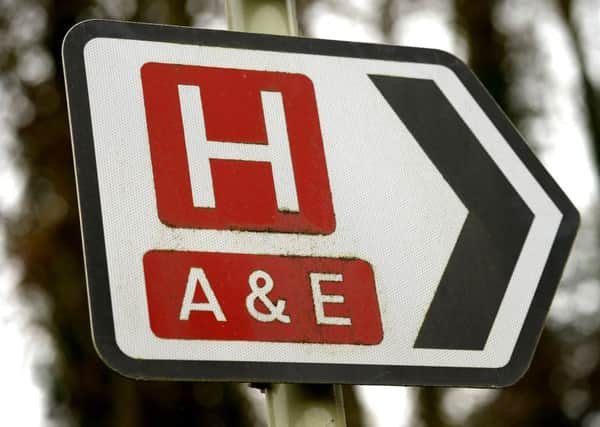Melody Redman: My sister is on mend, but NHS still needs fixing


I quietly consider the different diagnoses that could explain my sister’s symptoms and signs. The habitual medical analysis I am prone to as a doctor does not switch off but, as a relative, I cannot access my sister’s observations, blood test results, or scan results so it is me and my thoughts. I have exams coming up so I try to distract myself with studying.
Earlier that day, Mum had sent me a message describing my sister’s symptoms; I called her and told Mum to take her straight to hospital. Despite it being a Sunday, I know from my experience that the NHS is a 24- hour service and there will be someone there to help her.
Advertisement
Hide AdAdvertisement
Hide AdBy the time I had arrived on the earliest train to see my sister, she had been seen by a doctor, examined, and sent for an emergency CT scan. This all happened very quickly as she was triaged as a high priority because of her symptoms, despite the evident strain the department was under. The shortage of beds meant that when I arrived she was stretched out across a chair.
Shortly after a trolley becomes available in the emergency department and she soon falls asleep on it. I am left feeling strangely helpless to assist her. Anonymously and quietly sitting at her bedside, I listen to the hustle and bustle raging around me and I remember that as daunting as I found the emergency department as a medical student, I grew to love working there as a doctor. Despite the challenges, pressures and frustrations experienced by both staff and patients, it is a crucial and ultimately rewarding role.
The healthcare assistant approaches my sister’s bed smiling and asks if I’d like a drink. Slightly startled, I politely decline, but I’m incredibly grateful that she offers me one despite her being so busy.
Shortly after this, my 24-year-old sister is admitted to a specific ward. When we arrive at the bay of patients, all of whom are over 70, I still don’t want to leave her side. Regardless of age, illness or time of day or night, a hospital bed can be a lonely place. A junior doctor comes to see her and despite whatever else she is dealing with and the pressures of the day, she makes my sister her prime concern and is fully attentive. Although my desire is to interfere and succinctly present the patient’s history to her, I remind myself that right now I am not there to be a doctor, I am a sister.
Advertisement
Hide AdAdvertisement
Hide AdMy sister wakes up and I ask if there’s anything I can do for her. I smile to myself as I reflect on the way that many of my patients’ families go to buy drinks or snacks, as they want to do something to help their loved one. Right now, the only help I can give is my time and my company.
A couple of weeks later and my sister is now much better, which I attribute to the appropriate investigations and treatment provided by the NHS. I’m so grateful that the NHS was there for my sister, as it has been for many of my loved ones.
However, despite the hard work of staff, such as those on that Sunday, I worry about the stability of the system as it is becoming increasingly hard to manage. On April 5, the House of Lords select committee published a report criticising the “short-sightedness” of successive governments for failing to plan effectively for the long-term future of the health service and adult social care.
With the BMA warning that the NHS is at breaking point, increased investment is needed to achieve this; doctors and healthcare workers have long called for sustainable solutions for which long-term cross-party co-operation is vital.
Advertisement
Hide AdAdvertisement
Hide AdI want to remain confident that if someone I care about is ill, then they can receive the care they need on the NHS. I want to know that as a doctor I will still be able to treat patients regardless of their background, financial ability or any other extenuating factors. For this to be achieved, the NHS needs appropriate investment and true sustainability planning, before it’s too late.
I told my mum that day to take my sister to A&E because my sister needed immediate intervention and I knew she would receive that. Today, I am saying that the NHS needs immediate intervention. If we don’t invest in the healthcare system, the system cannot invest in us.
Melody Redman is a junior doctor training in clinical and academic paediatrics in Yorkshire. She is a representative of the British Medical Association Junior Doctors Committee.